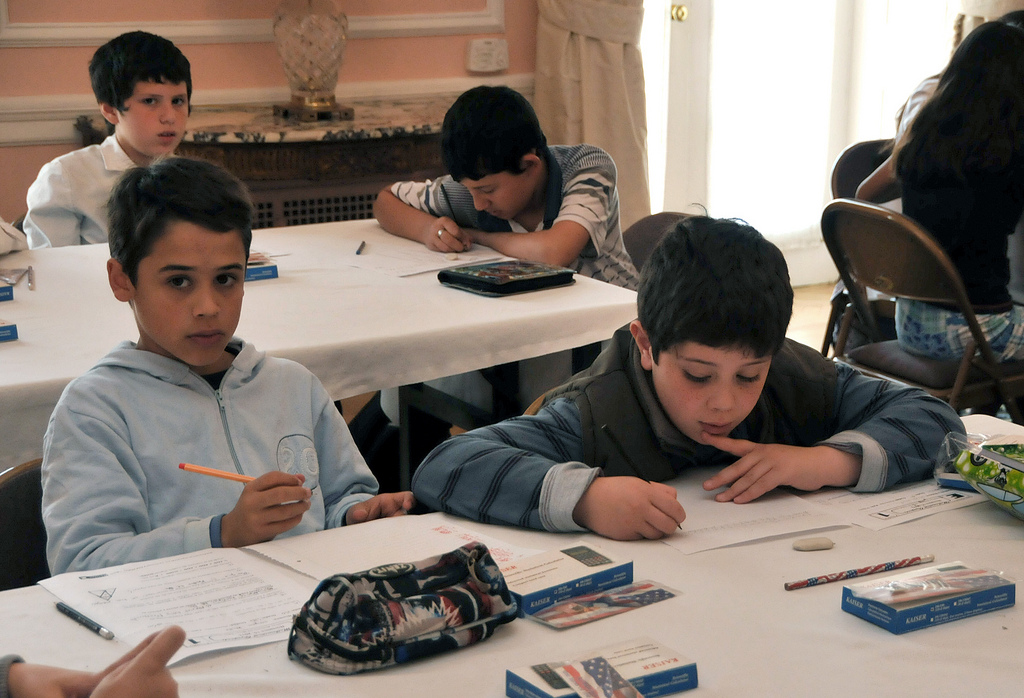School administrators, teachers, and parents show a disagreement on the effectiveness of evaluations to measure the soft skills and success of students in the future.
Photo: Bigstock
Although there is a collective agreement on the importance of evaluating 21st-century academic skills and “soft skills,” school administrators, teachers and parents show a disagreement on the effectiveness of the assessment process.
A new study by Gallup interviewed 1,011 parents and 1,000 educators to know students’ qualifications for the future and the skills they should master before entering university to succeed in their careers.
83% of teachers surveyed, 82% of parents and superintendents and 83% of principals agree it is essential that students learn academic subjects, as well as skills like critical thinking, teamwork, and creativity; not all, however, concur if these soft skills are adequately measured, and even more, what soft skills should students learn and where.
For some teachers, the responsibility to teach 21st-century skills rests with the family; parents do not agree. There is also no agreement on what to lecture, some interviewees focused on personal financial literacy, functional training in work skills and public speaking skills while others opted for character development, such as instilling a strong work ethic, teaching resilience to changes in life, take advantage of the ability to make decisions, among others.
The study details that at least one in 10 teachers think that “soft skills” are assessed very well in their school, the rest ensures that formal or informal assessments are useless or just a little useless. However, the teachers evaluated were unable to offer another type of evaluation.
Principals and superintendents stated that there is not enough time to determine which students need more help in improving their skills and give them support. Even so, 84% of American society agrees that it is necessary to evaluate soft skills, although only 39% trust that standardized tests measure them correctly.
Moreover, are these assessments indicators of the future success of students? It depends on the meaning attributed to success and the evaluation process: whether it is about entering the desired university, professional preparation, or the acquisition of other specific skills for life.
One in five parents believe that assessments measure very well the success that their children will have in college, 16% think that it grades the progress they will achieve in their career and only 19% that calculates the accomplishments in personal life.
Still, 94% of parents agree, or strongly agree, that their children are learning the essential skills that will help them succeed in the future.
According to the study, when knowing which evaluation model is more valuable to grade student learning, teachers, administrators, and principals favor test scores, while parents rely on the report card.
89% of the directors interviewed are based on state tests to measure student learning. Regarding these type of assessment, 64% of teachers and 52% of parents agree with the importance of these evaluations.
However, the continual disagreement of which way to evaluate may be a reflection of something bigger since 46% of the parents and 52% of the directors agree that the teachers devote very little time to communicate the results of the tests to the parents.
The study concludes with three recommendations to resolve the gap between the opinions of superintendents, teachers, and parents:
Accelerate the evaluation model to measure what matters most to achieve student success.
Investigate more deeply about the importance of the development and evaluation of non-academic skills among different communities, schools, and families.
Create a better unity among educators. Teachers and school administrators must ensure that parents receive constant news about their children’s learning, including advancing their soft skills. Educational leaders should support teachers in the way they communicate the assessment data, its meaning and its implications for student success to students, families and the community.
This article from Observatory of the Institute for the Future of Education may be shared under the terms of the license CC BY-NC-SA 4.0 
)
)








)
Karina Fuerte
Karina Fuerte
A teacher in Spain has been charged with five counts considered severe. The reason? Give the highest grade (10) to all students.
Karina Fuerte